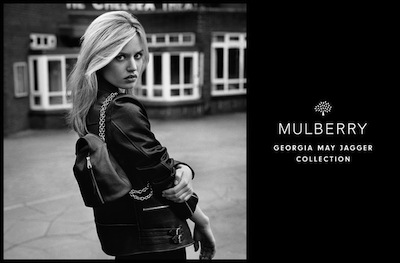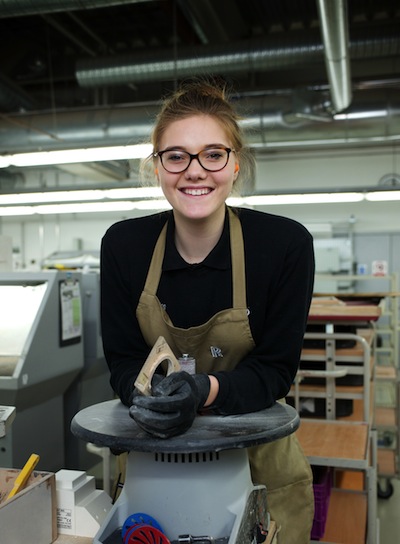 Promotional images for Walpole Crafted
Promotional images for Walpole Crafted
The United Kingdom’s luxury market continues to show strong growth, with 56 percent of brands adding to their workforce since 2014 and 75 percent expecting full-year sales to increase, according to a report by Wealth-X and Walpole.
With its tireless dedication to craftsmanship and heritage, the UK, and London specifically, has retained its status as the “go-to” hub for the wealthy due to its established luxury infrastructure that has proved beneficial for both brands and consumers. Wealth-X and Walpole’s “UK Luxury Benchmark 2015” study shows that despite economic turmoil elsewhere, the UK market has remained an attractive business and fiscal environment for the luxury industry to flourish.
“The central location of the UK and its attractive business and fiscal environment - barring a potential exit from the European Union, continues to appeal to a diverse cross-section of nationalities,” said Madelaine Ollivier, senior luxury analyst at Wealth-X, London.
“London remains one of the world’s most established luxury cities and its luxury infrastructure continues to make it an exciting and dynamic place to be for both brands and consumers,” she said.
Wealth-X worked with Walpole, an alliance of 170 of UK-based luxury brands, for the fifth annual UK Luxury Benchmark study. For the study, the researchers surveyed 68 senior luxury market professionals with Walpole membership, 62 percent of whom are either c-level executives or brand owners.
The survey covers all of the UK luxury industry, with the largest represented sectors being apparel and accessories, jewelry and watches and travel and hospitality. The survey was conducted in Q4 of 2015 and based on 2015 YTD results.
Just touched down in Londontown
Overall, the benchmark study suggests that the UK economy is growing, with London as its economic and luxury center, giving brands ample reason to set up shop in the capital city.
With three quarters of respondents stating that they expect to see full year sales increase from 2014, globally and within the UK the luxury sector has seen consistent growth for the last decade. According to a study Walpole conducted with Frontier Economics in September 2015, the luxury sector is an economic success story for the UK economy as it has grown at nearly 8 percent per year since 2010.
In comparison to other strongly regarded emerging luxury markets, such as China and Brazil, which have shown signs of a slowdown, the UK has maintained its momentum. The momentum seen in the UK is not only conducive to international tourism, but to the market’s growing high-net-worth population.
 Georgia May Jagger for Mulberry
Per Wealth-X, over the next five years the number of millionaires in the UK is on course to increase at an annual compound growth rate of 8 percent. Additionally, the UK’s geographical positioning, alongside its economic and political stability, has made the market considerably attractive for the wealthy.
This has resulted in a dynamic cultural scene, a booming property market and leading educational institutions, all of which has proved attractive to affluent international visitors, many of whom have second homes in the country.
But, Wealth-X and Walpole note that the global slump in oil prices and political turmoil may impact the overall market in the UK in regard to consumer confidence, especially for UHNW individuals from the Middle East and Russia.
As with many European markets, the UK, especially as its economy grows, must have an understanding and awareness of the Chinese consumer, who accounts for 30 percent of all luxury sales worldwide. Importantly, brands in the UK have put pressure on the government to simplify the visa policies for Chinese visitors as their purchases while abroad contribute to the sector’s pattern of growth.
Respondents explained that they see visa policies as the largest barrier between their brands and Chinese tourist market share, as many consumers from China opt to visit Paris or Milan for tax-free shopping excursions.
Georgia May Jagger for Mulberry
Per Wealth-X, over the next five years the number of millionaires in the UK is on course to increase at an annual compound growth rate of 8 percent. Additionally, the UK’s geographical positioning, alongside its economic and political stability, has made the market considerably attractive for the wealthy.
This has resulted in a dynamic cultural scene, a booming property market and leading educational institutions, all of which has proved attractive to affluent international visitors, many of whom have second homes in the country.
But, Wealth-X and Walpole note that the global slump in oil prices and political turmoil may impact the overall market in the UK in regard to consumer confidence, especially for UHNW individuals from the Middle East and Russia.
As with many European markets, the UK, especially as its economy grows, must have an understanding and awareness of the Chinese consumer, who accounts for 30 percent of all luxury sales worldwide. Importantly, brands in the UK have put pressure on the government to simplify the visa policies for Chinese visitors as their purchases while abroad contribute to the sector’s pattern of growth.
Respondents explained that they see visa policies as the largest barrier between their brands and Chinese tourist market share, as many consumers from China opt to visit Paris or Milan for tax-free shopping excursions.
 Burberry Snapchat campaign for spring/summer 2016
Although the Chinese consumer contributes to the global luxury market share, since 2013 the United States tourist has overtaken China to become the fastest source of foreign sales of UK luxury goods.
Outside of the UK, the continental European and North American markets generate more than half of revenue for brands of British origin. Elsewhere, markets such as China, Russia, India and South Korea are growing quickly with a high demand for UK luxury goods.
Despite its weak infrastructure, respondents cited India as a market for potential growth, with 30 percent of respondents agreeing, compared to 23 percent in 2013. South Korea is also a market of interest for UK brands, with many lacking a physical presence there but expressing enthusiasm for the region due to its proximity to China and cultural popularity.
Luxury in training
The ongoing success of the UK luxury sector may be attributed to its dedication to keeping its workforce and operations rooted in its country of origin.
To accomplish this feat and to keep interest in its traditional industries, UK brands are proficient in offering apprenticeship programs, with 44 percent of respondents stating that a training system has been in place for some time.
Overwhelmingly, respondents said that a strong historical narrative, design excellence, authenticity and craftsmanship expertise are contributing factors to brand longevity and success. With this also came recognition for needing to procure future talents as the “older” generation leave their positions, thus the importance of an active apprenticeship program meant to protect legacy and craft.
On average, 50 percent of respondents said that when apprentices finish their time at the brand they are taken on as full-time employees.
The UK auto industry has shown its prowess at inciting interest in its interest through a number of apprenticeship programs, a concept that can be translated across sectors (see story).
Burberry Snapchat campaign for spring/summer 2016
Although the Chinese consumer contributes to the global luxury market share, since 2013 the United States tourist has overtaken China to become the fastest source of foreign sales of UK luxury goods.
Outside of the UK, the continental European and North American markets generate more than half of revenue for brands of British origin. Elsewhere, markets such as China, Russia, India and South Korea are growing quickly with a high demand for UK luxury goods.
Despite its weak infrastructure, respondents cited India as a market for potential growth, with 30 percent of respondents agreeing, compared to 23 percent in 2013. South Korea is also a market of interest for UK brands, with many lacking a physical presence there but expressing enthusiasm for the region due to its proximity to China and cultural popularity.
Luxury in training
The ongoing success of the UK luxury sector may be attributed to its dedication to keeping its workforce and operations rooted in its country of origin.
To accomplish this feat and to keep interest in its traditional industries, UK brands are proficient in offering apprenticeship programs, with 44 percent of respondents stating that a training system has been in place for some time.
Overwhelmingly, respondents said that a strong historical narrative, design excellence, authenticity and craftsmanship expertise are contributing factors to brand longevity and success. With this also came recognition for needing to procure future talents as the “older” generation leave their positions, thus the importance of an active apprenticeship program meant to protect legacy and craft.
On average, 50 percent of respondents said that when apprentices finish their time at the brand they are taken on as full-time employees.
The UK auto industry has shown its prowess at inciting interest in its interest through a number of apprenticeship programs, a concept that can be translated across sectors (see story).
 A Rolls-Royce Motor Cars apprentice
Likewise, Walpole has also championed the role of craftsmanship in the luxury industry with a program called Walpole Crafted that gives business guidance to artisan entrepreneurs.
In partnership with patron Vacheron Constantin and in association with Fortnum & Mason, Walpole Crafted gives up to 12 individuals or businesses access to mentors and educational workshops designed to help them scale their business. While the luxury industry prides itself on the handwork that goes into its products, technology is displacing traditional production in many mainstream companies, making this type of program a necessary platform to preserve the craft and profitability of independent makers (see story).
“Homegrown, British brands that are manufactured in the UK will benefit from a growing group of consumers who are concerned with the origins of their luxury products,” Ms. Ollivier said.
“Brands that focus on their social impact and creating a positive environmental impact are also well placed to benefit from growing consumer demand,” she said. “We continue to see tourist spend, despite the sterling/euro fluctuations supporting growth of the UK Luxury market.
“The UK continues to stand out for housing some of the world’s leading educational facilities which in turn attracts many of the world’s wealthy.”
A Rolls-Royce Motor Cars apprentice
Likewise, Walpole has also championed the role of craftsmanship in the luxury industry with a program called Walpole Crafted that gives business guidance to artisan entrepreneurs.
In partnership with patron Vacheron Constantin and in association with Fortnum & Mason, Walpole Crafted gives up to 12 individuals or businesses access to mentors and educational workshops designed to help them scale their business. While the luxury industry prides itself on the handwork that goes into its products, technology is displacing traditional production in many mainstream companies, making this type of program a necessary platform to preserve the craft and profitability of independent makers (see story).
“Homegrown, British brands that are manufactured in the UK will benefit from a growing group of consumers who are concerned with the origins of their luxury products,” Ms. Ollivier said.
“Brands that focus on their social impact and creating a positive environmental impact are also well placed to benefit from growing consumer demand,” she said. “We continue to see tourist spend, despite the sterling/euro fluctuations supporting growth of the UK Luxury market.
“The UK continues to stand out for housing some of the world’s leading educational facilities which in turn attracts many of the world’s wealthy.”
